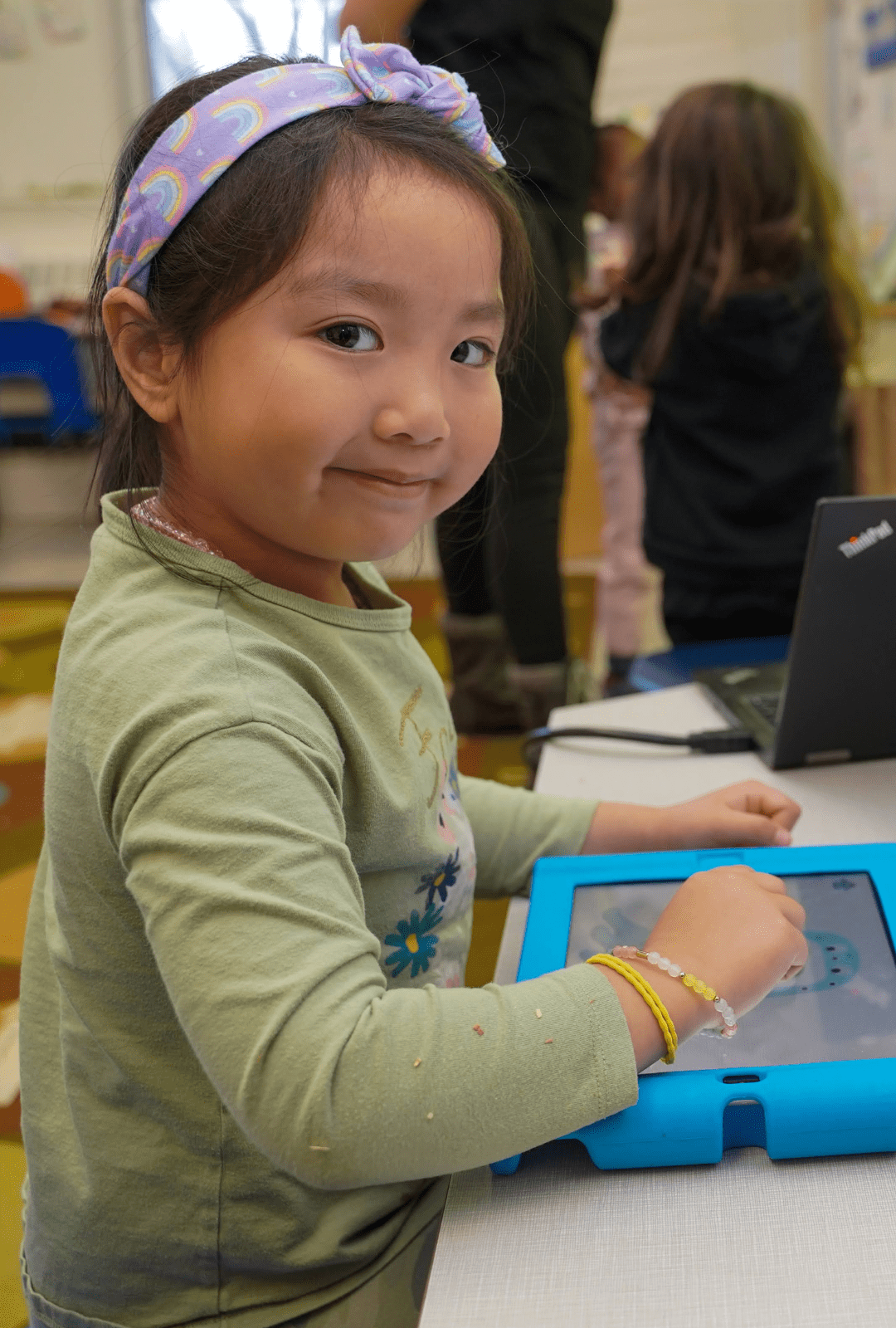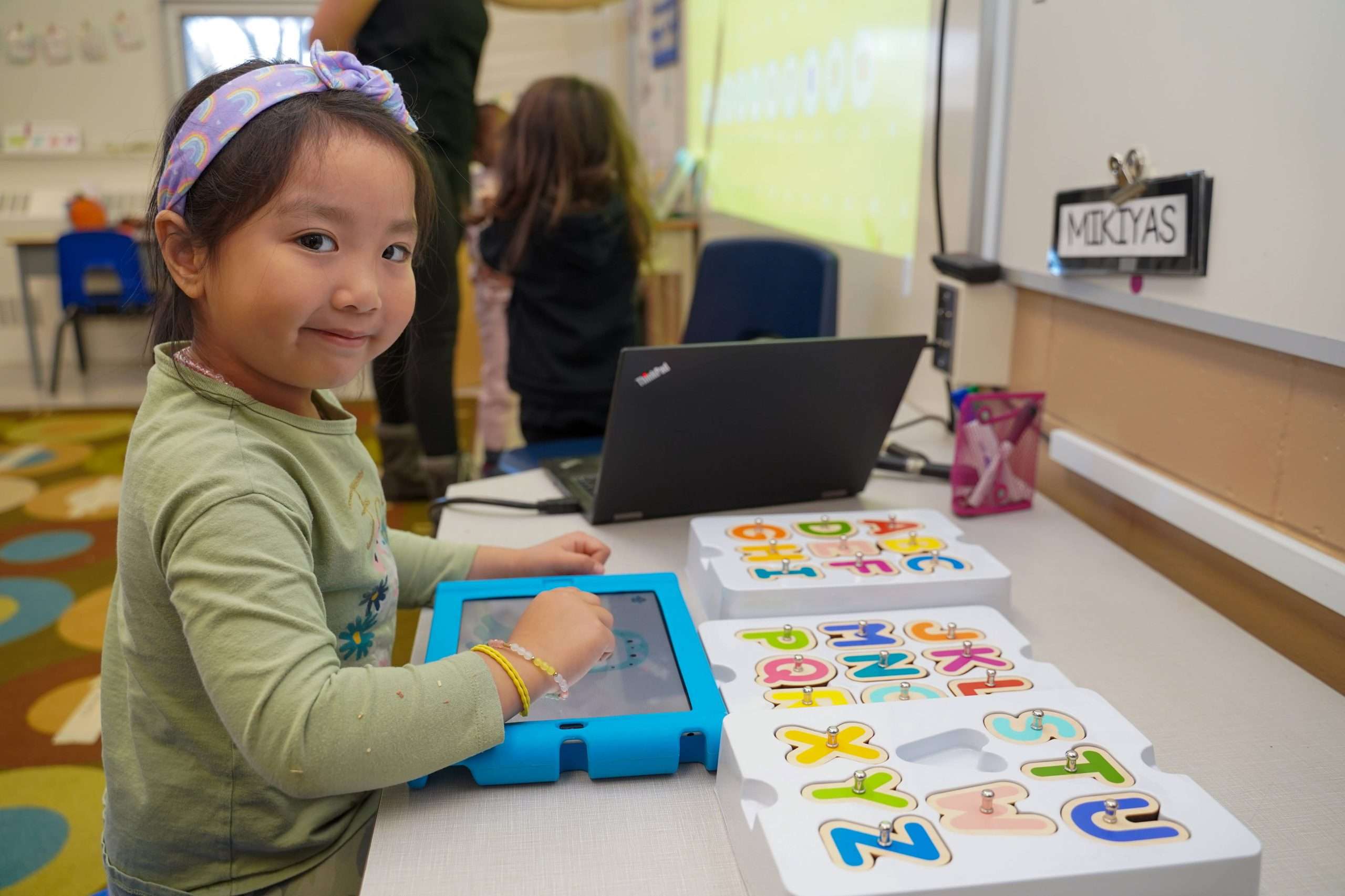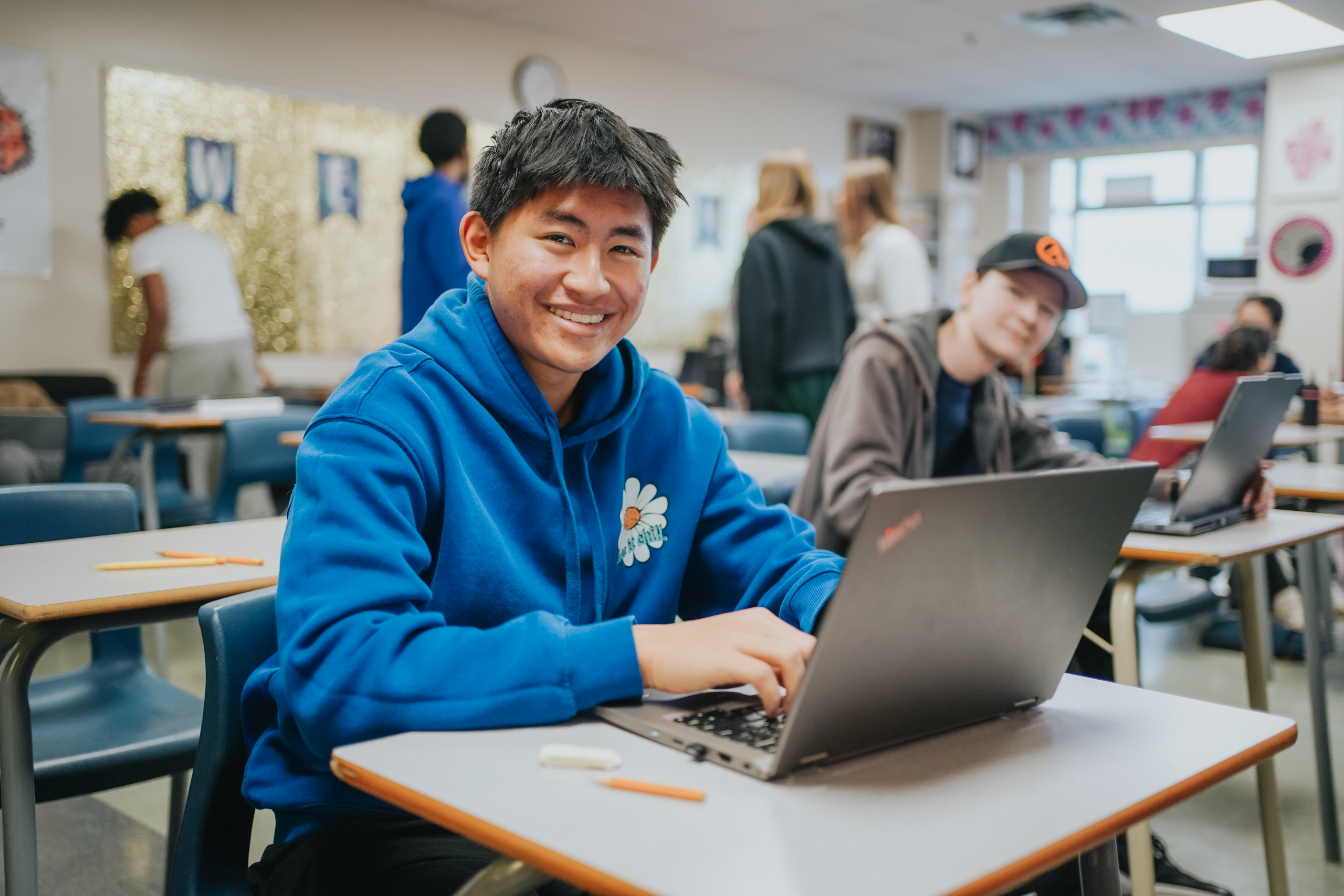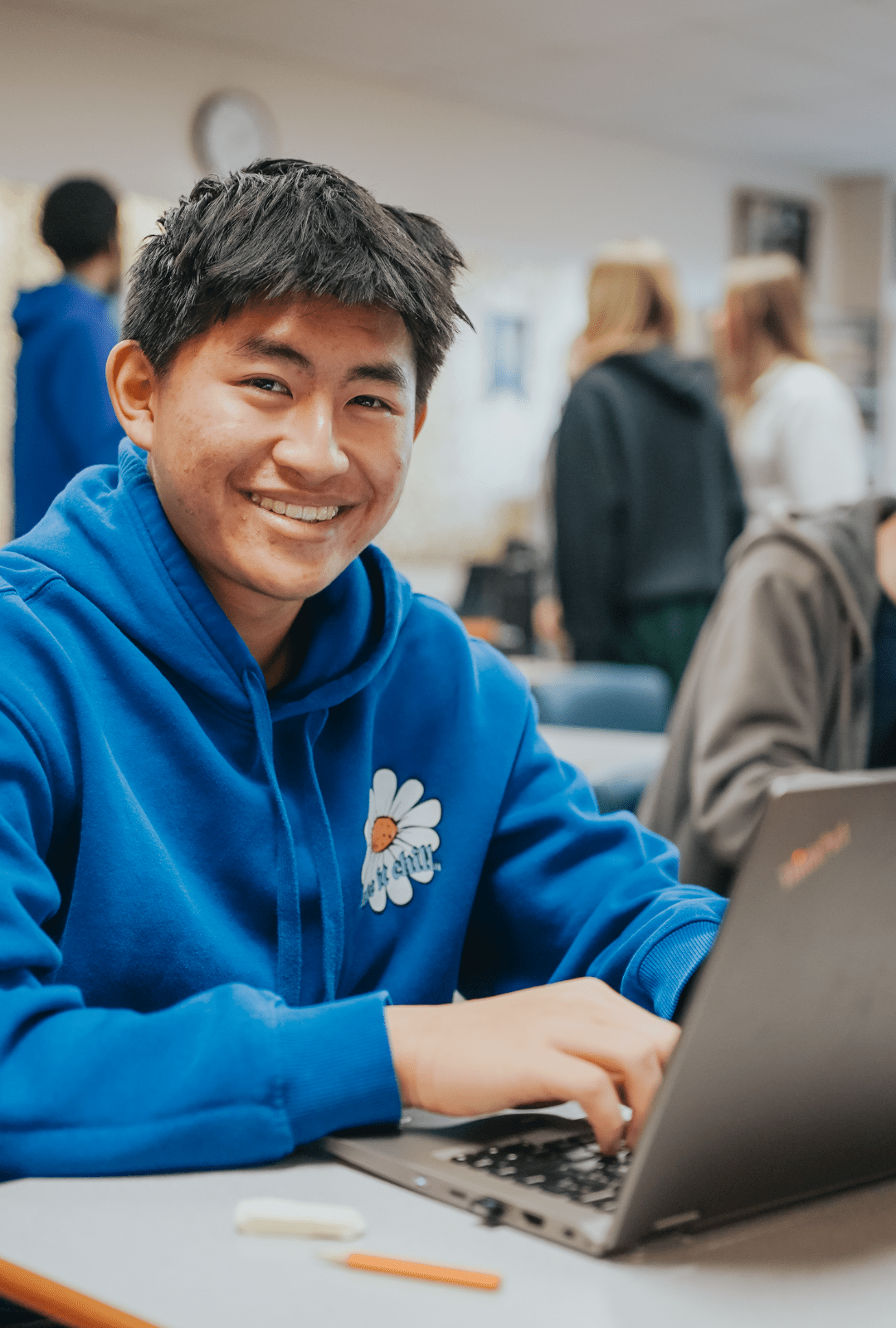How We Are Using Technology Responsibly and Ethically
In today’s rapidly evolving world, technology plays a crucial role in shaping the way we learn and interact. We are dedicated to equipping our students with the digital literacy skills they need to thrive. However, we also emphasize the importance of using technology responsibly and ethically, guided by our Catholic values.


Our Commitment to Digital Literacy and Ethical Use
We believe that technology, when used correctly, can enhance learning experiences and foster collaboration and communication. It allows us to engage students in innovative ways, from connecting with experts globally via video conferencing to developing critical thinking skills through coding and problem-solving activities.
Our focus is on using technology for good—leveraging digital tools with integrity and compassion, in line with Catholic social teachings that uphold the dignity of all individuals.
Focusing on Responsible Digital Citizenship
We dedicate time to speak with our students about good digital citizenship and teach them how to use technology responsibly in a grade-appropriate way. Through our Samaritans on the Digital Road resource, we help students understand good digital citizenship through lessons inspired by the parable of The Good Samaritan (Luke 10:25-37). The Good Samaritan story tells us to be compassionate, treat others with dignity, and take care of our neighbours. Each grade explores how this story applies to online behaviour, addressing age-appropriate challenges.

Our Approach to Artificial Intelligence
Artificial Intelligence (AI) is a revolutionary technology that is impacting all sectors of the economy. It is essential that we teach our students AI literacy skills to equip them with the knowledge and skills they need to make ethical decisions in a constantly evolving and interconnected society.
We believe AI also has the potential to transform education. It gives us an opportunity to innovate student learning, improve student achievement, and help support the well-being of staff and students. Done right, AI can have a positive impact on every single student and staff member across our board. We believe:
- Every student and staff member should have access to AI tools.
- We have a responsibility to teach AI literacy to students to provide them with skills to navigate today’s world.
We recognize that AI has several risks that must be mitigated. We will do this by adhering to our AI Guiding Principles and encouraging all staff and students to use critical thinking skills when using AI tools.

Our Technological Infrastructure
At OCSB, we ensure that all students have access to the technology they need:
- Wireless Access: All schools are equipped with wireless internet for staff and students. This extends to outdoor areas, enabling students to take their learning beyond traditional classroom boundaries.
- Device Provision: We provide access to devices in all schools. Classroom devices are available from Kindergarten to Grade 2. We strive to provide a Chromebook for every student in grades 3-8. Students in Grades 9-12 use a combination of Bring Your Own Device (BYOD) and Board-owned devices. Students using their own devices must do so in accordance with our acceptable use guidelines. The Ontario Ministry of Education has directed all School Boards to block social media sites on Board networks and to limit the use of personal smartphones to educator-approved access for instructional purposes.
- Curated Resources: We offer access to a wide selection of online tools vetted by the Board to ensure they meet privacy, security, and educational standards. We enhance class lessons through a mix of Google for Education collaborative tools. All classroom educators post weekly learning activities on the Board learning management system (Hapara) to help students stay up to date on classroom activities when they are away from school. Students in Kindergarten through Grade 12 can quickly and easily access these tools at school or from home through our Student Portal. Parents have access to student information through the parent portal.
- Robust Support: Our Learning Technologies Department supports over 10,000 computers and 45,000 users daily, ensuring the safe and effective use of more than 100 applications.